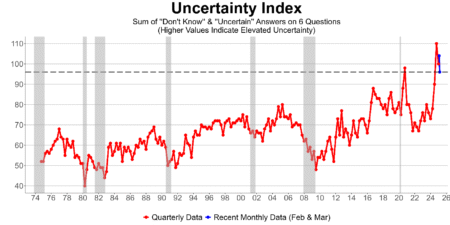Medhat Zaki is a resilient German entrepreneur and CEO of Zaki International GmbH.
Think about it. You can have the flashiest product, the slickest marketing and cutting-edge tech, but if people don’t trust you, none of it matters. Trust is the glue that holds businesses together—the secret sauce that turns customers into loyal fans, employees into brand ambassadors and stakeholders into true believers.
And here’s the most important thing: Trust isn’t just a nice-to-have anymore. It’s the new currency of business. In an era of rapid change and uncertainty, I think the companies that prioritize trust will be better positioned to thrive. So, let’s explore why trust is the ultimate competitive advantage and how you can make it work for your business.
Why Trust Matters More Than Ever
The business landscape is changing faster than ever. Markets are global, competition is fierce, and customer expectations are through the roof. But amid all this chaos, one thing remains constant—the human need for trust.
Here’s why trust is more important than ever:
• Customers have endless choices: With a few clicks, your customers can find a dozen alternatives to your product or service. What makes them choose you? Trust.
• Employees demand more: Today’s workforce isn’t just looking for a paycheck—they want to work for companies they believe in. Trust is the foundation of employee engagement and retention.
• Stakeholders want transparency: Many investors, partners and regulators are increasingly focused on ethical practices and long-term sustainability. I’ve found trust is the key to building those relationships.
In short, trust is a business imperative.
The Economic Value Of Trust
Still not convinced? Let’s talk numbers. Trust is good for your bottom line.
Here’s how trust impacts your business:
• Customer loyalty: According to a study by Edelman, trusting a brand is a top three purchasing factor: “If consumers fully trust a brand, they are more likely to purchase it (net of 63 percent), advocate for it (53 percent), and stay loyal to it —not shopping around for other brands.”
• Employee productivity: A recent study shows that “Trusting employees are 260% more motivated to work, have 41% lower rates of absenteeism, and are 50% less likely to look for another job.” And happy employees often lead to happy customers.
• Crisis resilience: Businesses with strong trust foundations often recover faster from crises. Just look at Johnson & Johnson—their transparent handling of the Tylenol crisis in the 1980s not only saved their reputation but strengthened it.
The bottom line? Investing in trust-building can pay off “big time.”
How To Build Trust In The Digital Age
Alright, so trust is important. But how do you build it—especially in an increasingly digital and impersonal world?
Here are four strategies to get you started:
1. Be transparent (yes, even when it’s difficult).
Let’s be realistic: No one likes feeling like they’re being kept in the dark. Transparency is the foundation of trust.
Here’s what being transparent looks like:
• Share information openly, even when it’s uncomfortable.
• Admit mistakes and take responsibility.
• Use technology to enhance transparency, like blockchain for supply chain tracking or AI-driven customer insights.
For example, when Buffer faced a major security breach, they didn’t try to cover it up. They communicated openly with their users, apologized sincerely and kept them updated every step of the way. The result? Their customers trusted them even more.
2. Deliver on your promises every single time.
Trust is built on reliability. If you say you’re going to do something, do it. For example, Amazon Prime has built a massive following by promising fast, reliable delivery—and delivering on that promise. Sure, they’ve had hiccups, but their commitment to reliability has earned them a loyal customer base.
Here’s what this looks like:
• Set realistic expectations and exceed them.
• Focus on quality and consistency in everything you do.
• Use data to anticipate customer needs and deliver personalized experiences.
3. Put people first (yes, even before profits).
At the end of the day, trust is about people. Show your customers and employees that you value them—not just their wallets.
Here’s how to put people first:
• Invest in employee well-being and development.
• Create personalized, empathetic customer experiences.
• Prioritize ethical practices and social responsibility.
A great example of this is Patagonia. In addition to selling outdoor gear, they live and breathe environmental sustainability. Their commitment to the planet has earned them a loyal following—and a whole lot of trust.
4. Embrace continuous improvement—because “good enough” isn’t enough.
Trust isn’t a one-time thing. It’s a daily commitment to improvement. For example, Netflix started as a DVD rental service but pivoted to streaming when the market shifted. Their commitment to continuous improvement has kept them at the top of their game—and earned them the trust of millions.
Embracing continuous improvement means companies should:
• Regularly seek feedback from customers and employees.
• Use that feedback to identify areas for improvement.
• Stay ahead of industry trends and adapt to changing customer needs.
The Future Of Trust: What’s Next?
As we look to the future, I think one thing is clear: Trust will only become more important. In a world that’s increasingly digital, global and fast-paced, trust is the thing that can set you apart.
Here’s what I see on the horizon:
• AI: As AI becomes more integrated into business, companies will need to balance automation with human connection.
• Sustainability: Consumers are increasingly focused on ethical practices and environmental impact. Companies that prioritize sustainability can earn trust—and loyalty.
• Transparency: With the rise of social media and instant communication, transparency will be more important than ever.
The bottom line? Trust is much more than just a strategy; it’s a way of doing business. It’s about creating something that lasts—something that people can believe in, no matter how much the world changes.
So, go out there and make trust your superpower. Build it, nurture it and protect it. Because, in the trust economy, the future belongs to those who prioritize it.
Forbes Business Council is the foremost growth and networking organization for business owners and leaders. Do I qualify?
Read the full article here











